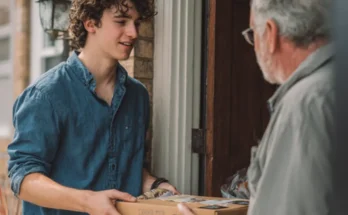Every visit to my parents’ house hurt my heart a little more. My daughter, Maddie, built castles from dollar-store blocks—chosen by grandparents who said, “You didn’t need help.” Meanwhile, her cousins unwrapped iPads, brand-name shoes, and Disneyland trips. If I asked for babysitting, they’d demand two-week notices—and gas money. Yet my sister could drop off her boys anytime, and they’d greet her with open arms and cookies.
“It’s because you and Mark are doing well,” my mom once said, as if fairness were measured in bank balances. But to a child, love isn’t measured this way.
One family barbecue changed everything. Maddie’s eyes darted to the trampoline as her nephews bounced, but before I could say anything, my father barked, “No—you’ll break it.” Maddie’s “I like my other grandparents more” broke the silence.
That’s when my in-laws stepped in. My mother-in-law, Emily, said with quiet strength, “Maddie is your granddaughter too. If you can’t see her as equal, the problem isn’t the trampoline.” My father-in-law added, “You may do the math, but children tally belonging.”
With that, Emily offered to make lemonade with Maddie and invited everyone to join. James, my father-in-law, said if they couldn’t share, they weren’t the real hosts. My mom’s face softened, and at last she whispered, “We didn’t realize.” I told her, “Then start here.”
After that day, things changed. It wasn’t about flashy gifts. It was about thoughtful invitations—“Come bake with grandpa,” “Bring your swimsuit,” “You choose the game.” Next visit, Maddie bounced safely alongside her cousins, no one left out. That afternoon, I stood with them, sunshine on my shoulders, knowing love had shifted its measure—from dollars to dignity.


